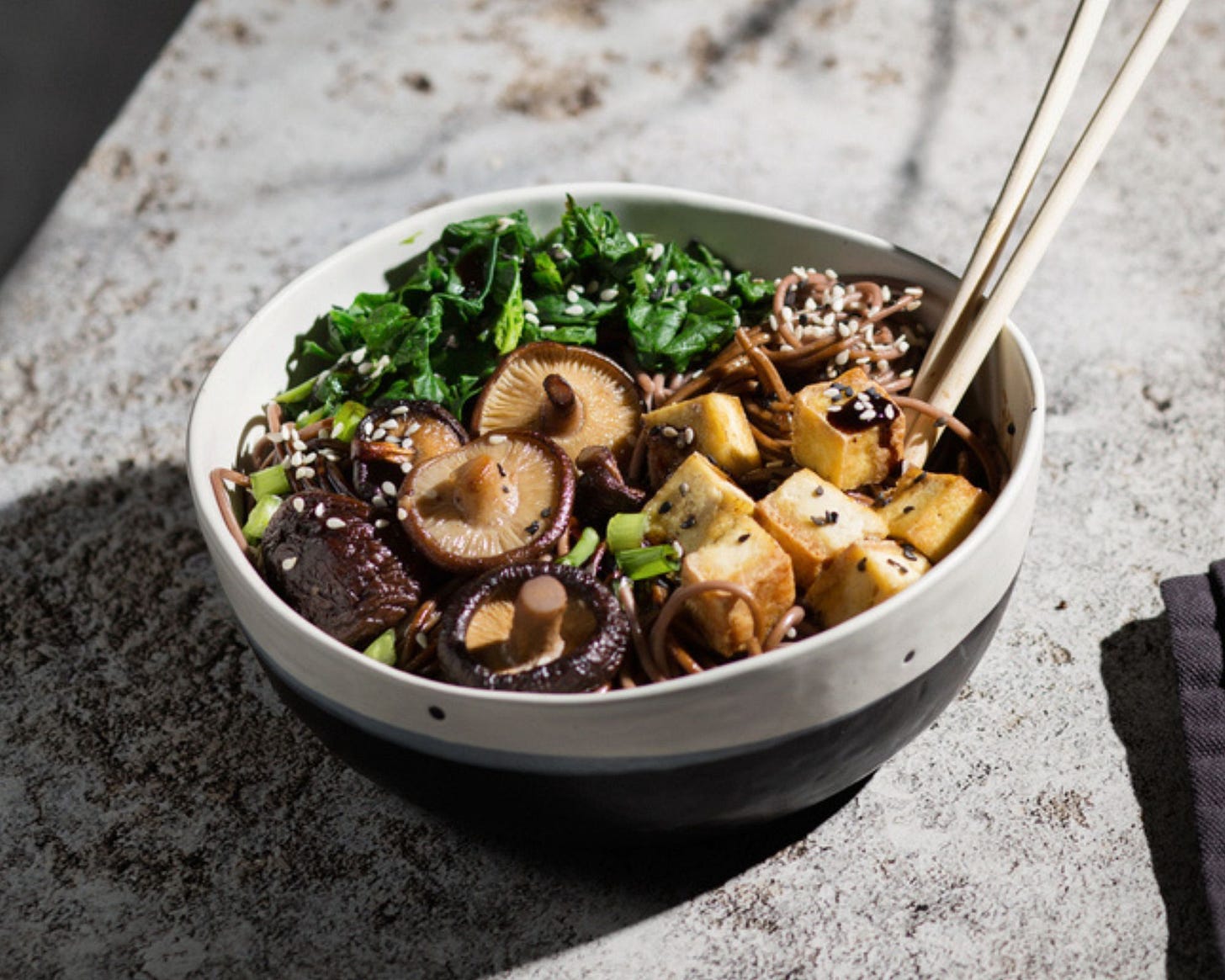🫛How Does Soy Actually Affect Estrogen and the Risk of Breast Cancer?
The science behind soy's impact on estrogen and what research shows
📖 About us: We are a UK startup with a mission to empower a healthier, sustainable future through plant-based transformation. Plantwise meal-planning app 📲 helps users leverage AI to create personalised dishes and meet all their nutrition goals through expert-crafted recipes.
💬 Talk to us: We would really love to hear your ideas and feedback. You can create a session with me directly here 🗓️.
The topic of soy always seems to be in hot debates. While soy is a high-protein plant-based superfood, many people do worry that soy can cause hormone imbalances and more severely, breast cancer. Today, let’s dive deeper into these claims and the research behind them. As usual, we have an exclusive recipe for our premium readers at the end!
The Power of Soy: Unlocking Nutritional Benefits and Probiotics
Soy is a nutrient-dense food, containing plenty of protein, B vitamins, fibre, potassium, and magnesium. Soy protein provides all nine essential amino acids that the body cannot produce and must obtain from the diet. If you eat vegan protein bars, you will often find soy protein in them, alongside pea protein and rice protein. Fermented soy (e.g. tempeh) is a also natural source of probiotics (see our latest guide on Gut Health), which yields many health benefits, including improved digestion, reduced inflammation, and enhanced immune function.
Debunking the Soy Myth: Phytoestrogens and Hormone Balance
Soybeans are packed with isoflavones, which are a type of phytoestrogen - a plant-derived substance that has a similar structure to human estrogen. These isoflavones, specifically genistein and daidzein, can bind to our body's estrogen receptors and exert both weak estrogen-like actions or block the activity of our body's natural, more potent estrogens.
Here's how it works: When our body's natural estrogen levels are high, these soy isoflavones can compete with our own estrogen for the same receptor spots, lowering the overall activity of estrogen in our body. This is what we call an anti-estrogenic effect. On the flip side, when our body's estrogen levels are on the lower side, these soy isoflavones can step in and act like a weaker version of estrogen, slightly boosting the overall activity of estrogen.
Why does this matter? Some people have voiced concerns about the effects of soy, specifically about its potential estrogen-like effects due to these isoflavones. They worry that because estrogen can stimulate the growth of breast cancer cells, eating lots of soy could be risky for those with breast cancer or those at high risk of developing the disease. We will explore this concern in the next section.
Soy and Breast Cancer: Separating Fact from Fiction
It's important to note that the original myth about soy causing breast cancer came from animal studies. Recent research has revealed that rodents and humans metabolise isoflavones in distinct ways. Previous studies demonstrating the promotion of estrogen receptor-positive (ER+) breast cancer growth in mice are based on significantly higher blood concentrations than those typically observed in humans consuming soy-based foods.
Many studies have now shown that eating soy may actually help prevent breast cancer. For example, the Shanghai Women’s Health Study followed over 73,000 women for more than seven years. It is found that consuming soy-based foods in adulthood, as measured by intake of soy protein or isoflavones, showed a strong inverse relationship with the risk of developing premenopausal breast cancer. Women who consistently consumed a high amount of soy foods experienced a 59% lower risk of premenopausal breast cancer. However, no significant association was observed between soy food consumption and postmenopausal breast cancer.
There's also evidence that soy could help those who've already been diagnosed. For instance, a large study of over 6,000 women diagnosed with breast cancer found that those who consumed the most soy isoflavones had a 21% lower risk of dying. Another study found that postmenopausal women treated with a breast cancer drug called tamoxifen had a 60% lower recurrence of breast cancer if they also had a high intake of daidzein, a type of isoflavone.
Furthermore, a study of over 5000 Chinese women found that those who survived early-stage breast cancer had a significantly lower risk of dying if they ate more soy. Women who ate the most soy had a 23% to 32% lower risk of recurrence compared to women who ate the least soy.
Exclusive Recipe: Shiitake Tofu Soba Noodle Bowl
This Japanese-Style Shiitake Soba Noodle Bowl takes you on a journey to Japan with the earthy flavours of shiitake mushrooms and the wholesome goodness of soba noodles. The shiitake mushrooms are a symbol of longevity in East Asian cultures, representing a wish for a long and healthy life. Topped with a sprinkle of nutty sesame seeds, this dish is an exquisite symphony of flavours and textures that embody the delicate balance and depth of Japanese cuisine.
Soba Fun Fact: Did you know that in Japan, people enjoy 'Toshikoshi Soba' on New Year's Eve? These special noodles are easily cut, symbolising the act of letting go of the past year.
Keep reading with a 7-day free trial
Subscribe to Plantwise 🌱 to keep reading this post and get 7 days of free access to the full post archives.


